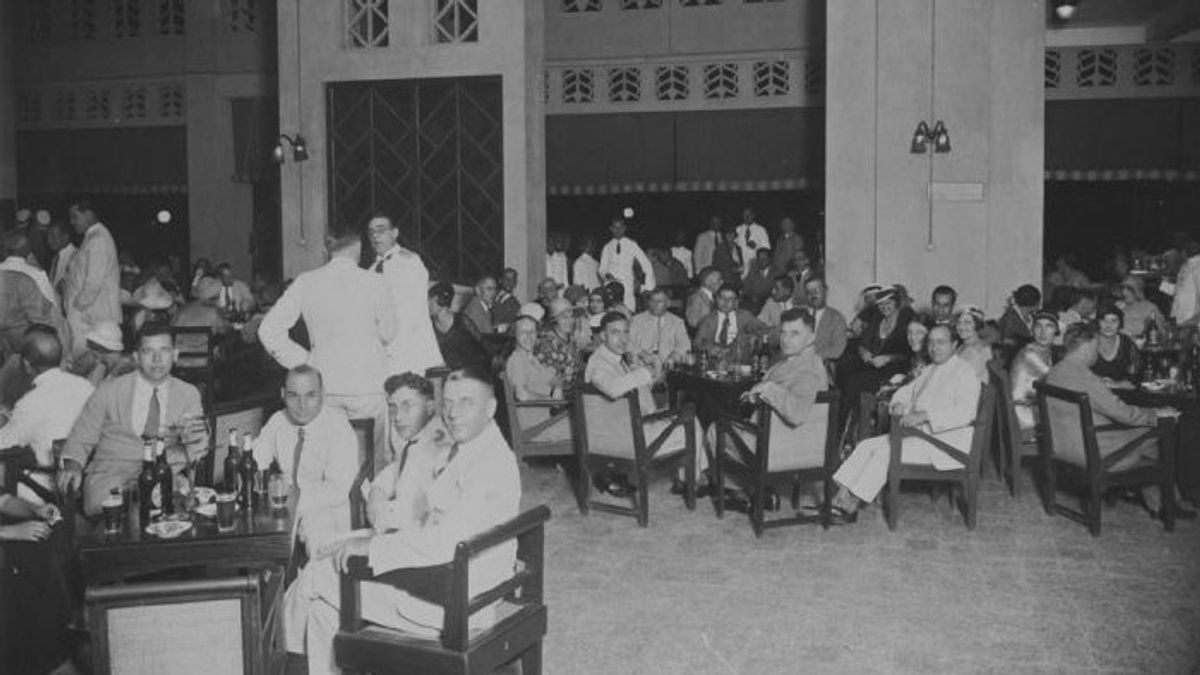JAKARTA - In the colonial era, Dutch officials completely exploited the wealth of the archipelago. Not a few of the proceeds of this profit went into the private pockets of Dutch officials through illegal fees (pungli). Therefore, it is not surprising that the elites are fond of parties and spree. As a result, the dance floor has become a place to show off wealth. In addition, the dance floor is also a means of lobbying for positions.
Even though on paper the salaries of Dutch officials were relatively small. Their income from extortion by living through extortion, smuggling, and private trade, made them live in wealthy colonies land. In fact, if it is calculated, the income they have is greater than that of the Dutch officials.
For this reason, Dutch officials were often caught living in luxury. In more detail, we have reviewed the spree of Dutch officials in the writing "The Mad Party and Spree of the Governor-General of the Dutch East Indies."
That luxury is what stimulates each other, officials to show off their wealth. This tradition has been lasting from the 17th century until the end of Dutch rule in the archipelago.
Quoted from Alwi Shahab in the book Waktu Holland Drunk Born in Batavia (2013), the favorite place for Dutch officials to show off their wealth apart from weddings and death ceremonies is to attend dances. Usually, they attended a dance party organized by fellow officials or a direct invitation from the Governor General of the Dutch East Indies in Batavia.
The location for the dance party that was chosen was usually Societeit - one of the most popular clubs of its day - or at the residence of the event owner. However, between the two, the dance party at the Societeit building - be it Harmonie or Concordia - emerged as the favorite. Because, at Societeit de Harmonie there is a room that can accommodate 600 people, all of which are only for elite officials. This is because those who are only ordinary employees, especially native Indonesians, are prohibited from entering the Societeit building.
"Verboden voor honden en inlander," is written on the gate, which in Indonesian means: Dogs and natives are prohibited from entering.

“At Harmonie, the issue of prestige and social status is shamelessly exposed. They greet each other not by name but by the number of their annual salary. For example: Meener 50 thousand guilders modestly yielded to meener 100 thousand guilders. Indeed, the Dutch colonial society was never known for being soft-spoken or clever and polite, ”wrote Alwi Shahab.
Not only that, the most obvious momentum to show off wealth was when the colonial government celebrated Batavia's 250th anniversary on May 29, 1869. The revelry lasted for three days. In closing, Societeit de Harmonie was chosen as the location for the climax of the event by holding a masked dance party (gekonstumeerd). Because of this, the rooms in Harmonie are decorated with Persian lamps, luxury furniture from Europe, wall hangings, flower garlands and tropical plants.
The rest are also provided with 40 tables, each for 12 people. Meanwhile, the park is decorated with six thousand lanterns and two decorations for gifts from gas factories and shipping companies. The event was so luxurious, those who came, were not just anyone. Even those who are rich and very rich can access the dance.
“The female guests looked at the high official's mother's clothes and made comments. Then the march was played, a sign for the dance to open. The big master with a smiling smile invited the wife of the vice chairman of Raad van Indie (Council of the Indies) to dance, while her husband followed in their footsteps. Each one knows who can be invited to dance according to their respective positions, ”written in the book Ketoprak Betawi (2001).
Although the women's seats are not numbered, they all know their places. It's kind of like there's an unwritten rule in there. If someone was careless in taking the seat, there would be demotion and a change of place of work. If not, then the person will be subject to social sanctions, such as being alienated from the European community.

The dance party was not only a place to show off the wealth of Dutch officials. There are many things that can be done such as creating and attending dances. The dance party is the right momentum to increase closeness with superiors that leads to job lobbying.
“But dancing — like a virtue — is arguably the reward in itself. Therefore, it is only partly suitable for the entertainment system as a way of getting a boost. Because the triumph of this principle reminds me of a welcome, ”said Augusta de Wit in the book Facts and Beauty of the Land of Java (2019).
In the end, every time there was news of a celebrity in the Indies holding a party, which was usually announced in the newspaper, other officials immediately prioritized being able to visit the dance party. Of course, with a display that can give a deep impression to the owner of the house.
Vice versa for Dutch officials who invited their superiors. In order to make an attractive impression on the big boss, the official who owns the event must be total in holding the dance party. Whether through charming decorations, abundant food, ceremonies, and lots of liquor. All of that is to win over your superiors, so that the desire to be promoted can be carried out in the shortest possible time.
"Of course, unless the guest who has just arrived is a woman with a higher position, in this case, the person who previously sat on the right will give up his seat to the guest of honor and is satisfied with the seat beside him," concluded De Wit.
The English, Chinese, Japanese, Arabic, and French versions are automatically generated by the AI. So there may still be inaccuracies in translating, please always see Indonesian as our main language. (system supported by DigitalSiber.id)













